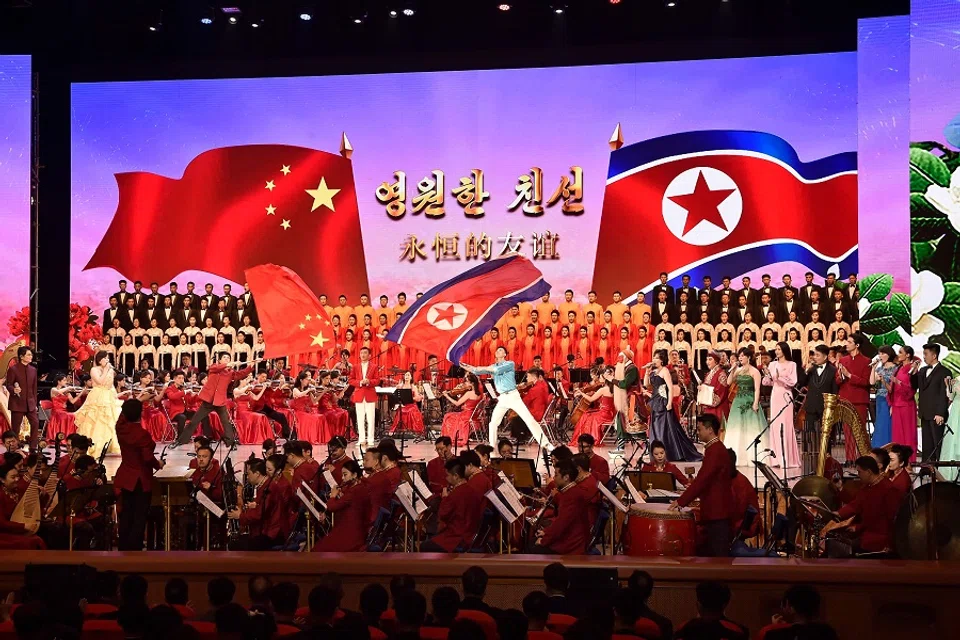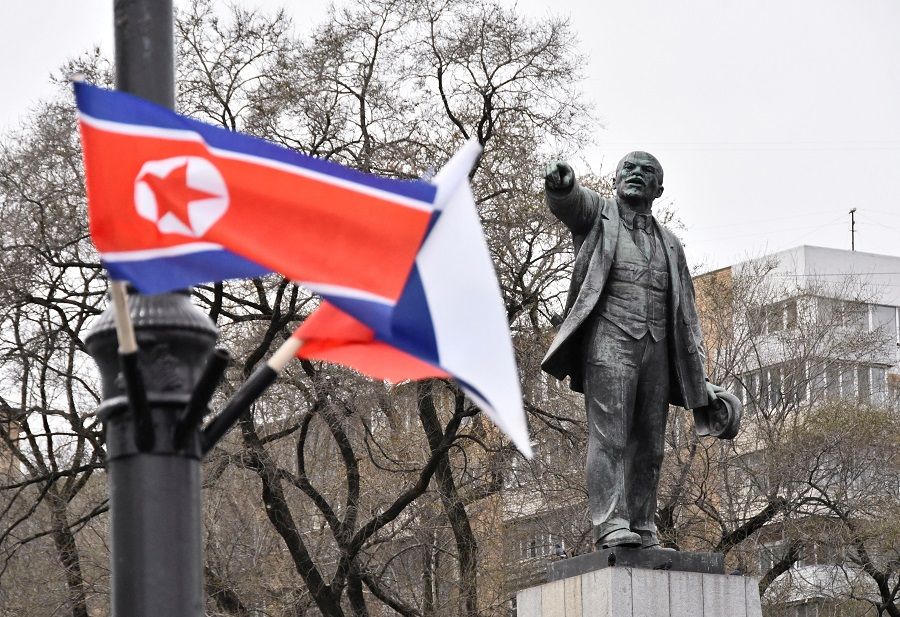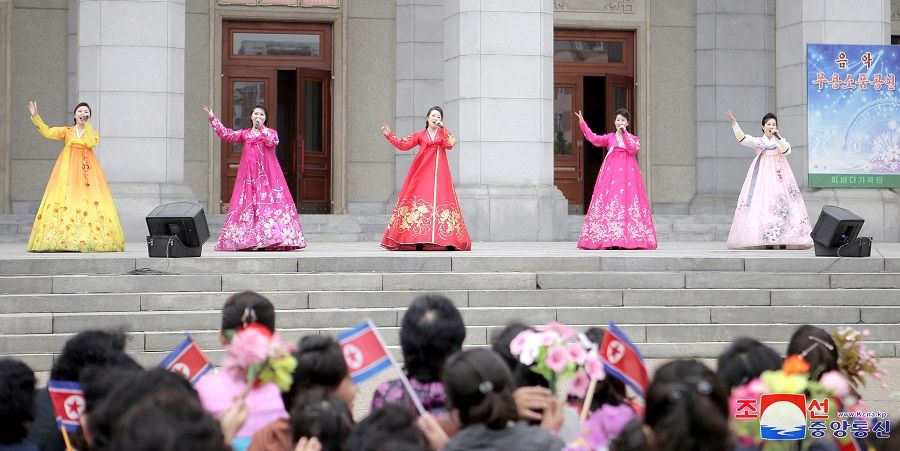North Korea is a lonely country, even among ‘friends’

This year, dubbed the China-DPRK friendship year, marks the 75th anniversary of the establishment of diplomatic relations between China and the Democratic People’s Republic of Korea (DPRK). An opening ceremony to mark the occasion was held in Pyongyang in mid-April. A Chinese delegation led by Zhao Leji, chairman of the Standing Committee of the National People’s Congress and the third-ranking member of the Standing Committee of the Political Bureau of the Communist Party of China (CPC), visited North Korea. Chairman of the State Affairs Commission Kim Jong-un welcomed them with a luncheon.
... the differences in their perceptions of the international environment are clear from their statements.
Chairman of the Standing Committee of the Supreme People’s Assembly Choe Ryong-hae, who represented the North Korean side at the opening ceremony, said, “The greater progress the two countries make towards a new horizon of building powerful countries under the uplifted banner of socialism, the more vicious the imperialists will be in their obstructive moves.” He also called for giving “full play to the might of militant friendship and unity which have been consolidated century after century”.
Zhao Leji, for his part, said, “Looking back, the two sides shared weal and woe and fought together, forging a great militant friendship through blood. He added that “both sides are united with sincerity and have been supporting each other in safeguarding the common interests of the two countries as well as international equity and justice”.
China and the DPRK: different threat perceptions
Although the two countries fought together in the Korean War in the 1950s and have been allies since the 1960s, the differences in their perceptions of the international environment are clear from their statements. North Korea is “fighting imperialism”, or in other words, has made its anti-American stance clear. The Chinese side, on the other hand, has avoided such mentions, and it can be said that China’s efforts to strengthen cooperation in foreign policy and security have remained extremely limited.
... China is avoiding unnecessary confrontation with the US over the North Korean issue.
For North Korea today, it is Russia, not China, that has agreed that the US is an enemy. After the invasion of Ukraine, the Putin government quickly moved closer to North Korea, and the term “anti-imperialist” is often used in the context of Russia-North Korea relations.

As Japan, the US and South Korea strengthen security cooperation, Kim Jong-un said in his government speech in January this year to “set the development of relations with socialist countries as its primary task”, and to “launch a courageous anti-imperialist joint action and joint struggle on an international scale”. In reality, however, there are only a limited number of countries that seek solidarity with North Korea.
Few true supporters among socialist countries
From the end of March to the beginning of April 2024, a delegation of the Workers’ Party of Korea (WPK) led by Kim Song Nam, director of the International Department, visited three socialist countries in Asia: China, Vietnam and Laos. Kim Song Nam met with Minister of the International Department of the CPC Liu Jianchao in Beijing as his first stop.
In North Korean media reports, Kim was said to have spoken about “the WPK’s line and policy of struggle against the United States and the enemy”. However, this kind of expression is not found in the statements of the Chinese side. It is clear that China is avoiding unnecessary confrontation with the US over the North Korean issue.
In Hanoi the North Koreans met with Le Hoai Trung, chairman of the Central Commission for Foreign Relations, and others, and the North Korean side “mentioned the line and policy of struggle against the United States and the enemy”. From the Vietnamese side, however, there were only economic remarks such as, “We sincerely wish the Korean people, under the leadership of the Workers’ Party of Korea, greater achievements in socialist construction such as economic development and improvement of people’s lives.”
Vietnam has established very good relations with its former enemies, the United States and South Korea, and it can be said that it has only superficially claimed friendly relations with North Korea.
Laos was the only country where it was possible to deepen the sense of solidarity. In Vientiane, the North Korean side was able to get a statement from Supreme Leader Thongloun Sisoulith: “We fully support the policy of the Workers’ Party and the government of Korea to maintain peace and security on the Korean peninsula.” However, strong words such as “hostile struggle” were not used.
... the only countries with which North Korea can stand in solidarity with the “anti-imperial” movement are Russia and Syria.
A rift with Cuba
North Korea also has a rift with another existing socialist state. Cuba normalised diplomatic relations with the US in 2015 and established diplomatic relations with South Korea in February 2024.
Although North Korea does not openly criticise Cuba, its displeasure is evident in the tone of its media. State media Rodong Sinmun published a congratulatory message from Cuba’s “General Raúl Castro Ruz of Cuba” to Kim Jong-un.
Congratulating the latter on the 112th anniversary of the birth of the founder of this nation, Kim Il Sung, Raúl “reaffirmed the steadfast will to strengthen the historic bilateral relations and continue to develop the mutual solidarity and the relations of support and cooperation for the well-being of the peoples of the two countries”. Raúl, who is 92 years old, retired from the position of First Secretary of the Central Committee of the Communist Party of Cuba more than three years ago.

It is unclear whether the congratulatory telegram from current Supreme Leader Miguel Díaz-Canel was not sent or whether it was sent but not recorded in Rodong Sinmun. It is worth noting, however, that the country name “Cuba” was not prominently stated in North Korea’s report of Raúl’s congratulatory telegram.
As can be seen above, there is a considerable difference in temperature between North Korea and other socialist countries, and the only countries with which North Korea can stand in solidarity with the “anti-imperial” movement are Russia and Syria. Among the countries friendly to North Korea, Syria is the only one that does not have diplomatic relations with South Korea.
